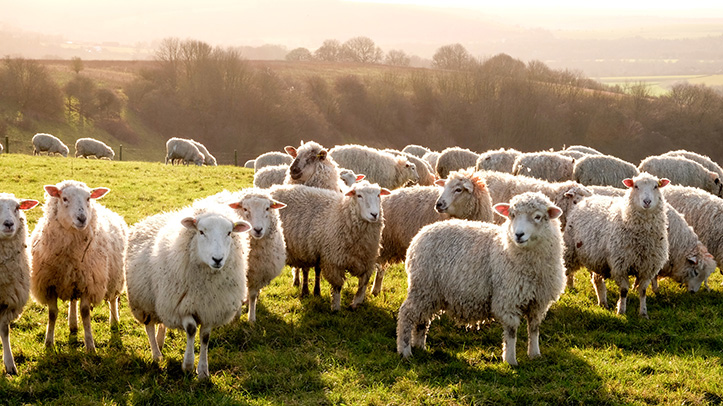The National Sheep Association (NSA) has outlined what it believes should be priorities for the incoming government concerning the future of British agriculture, highlighting that now is the chance to commit to a policy that protects and enhances the UK’s food systems.
NSA’s eight priorities include a call for food production to be recognised as a public good and for a commitment to an increased agricultural budget across the nation to be made.
NSA chief executive Phil Stocker said: “As an industry Agriculture has been in an increasingly uncertain position over the past few years, highlighting just how volatile external influences can be. Increased investment is needed for productivity, on farm climate actions that are deliverable alongside nature recovery, water, air and soil health, and social well-being.
“There must be a cohesive approach across all nations and a ring-fenced budget must not be diverted away from agriculture and its wider deliverables.”
A list of what NSA would like to see actioned following Thursday’s election can be found on the NSA website at www.nationalsheep.org.uk/news.
Mr Stocker continued: “Britain has lurched through five prime ministers — and ten secretaries of state for environment, food and rural affairs — in the space of the 14-year Conservative reign, each with different approaches to the UK’s farming sector.
“The last 14 years have seen economic crisis, Scottish independence vote, Brexit, Covid pandemic, many a trade deal and a new Agriculture Bill enshrined in law, all under the leadership of different Prime Ministers., and all impactful on British agriculture.
“Now is the time for any future government to take ownership of the existing progress made with the Environmental Land Management Scheme (ELMS) and develop and prioritise a food policy and a clear and related land use strategy that is fit for purpose and that supports the next generation of farmers.
“NSA would also like to see increased investment into livestock health, investment into wool innovation, and carbon lifecycle of wool, and developing a new Sanitary and Phytosanitary (SPS) agreement with the EU.”


